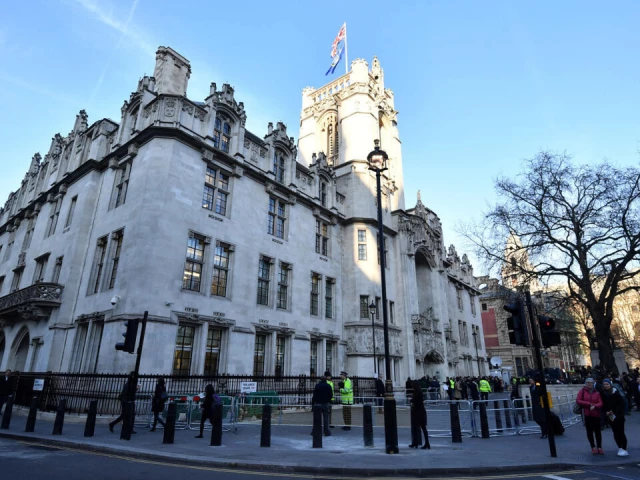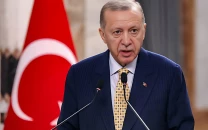UK SC backs 'biological' definition of woman
Says legal definition of 'woman' excludes trans women, in landmark ruling

Britain's Supreme Court ruled Wednesday that the legal definition of a "woman" is based on a person's sex at birth, a landmark decision with far-reaching implications for the bitter debate over trans rights.
In a win for Scottish gender-critical campaigners who brought the case to the UK's highest court, five London judges unanimously ruled that "the terms 'woman' and 'sex' in the Equality Act 2010 refer to a biological woman, and biological sex".
However, the act also "gives transgender people protection" against discrimination in their acquired gender, Justice Patrick Hodge said in handing down the verdict.
The UK government welcomed the ruling for bringing "clarity" to the debate.
It is the culmination of a years-long battle between the Scottish government and the campaign group For Women Scotland (FWS) -- which launched an appeal to the Supreme Court after losing pleas in Scottish courts over an obscure legislation aimed at hiring more women in public-sector bodies.
Dozens of FWS and other gender-critical campaigners, who argue that biological sex cannot be changed, cheered the ruling, hugging and crying outside the court.
"This has been a really, really long ride," said Susan Smith, co-director of For Women Scotland.
"Today, the judges have said what we always believed to be the case: that women are protected by their biological sex," she said. "Women can now feel safe that services and spaces designated for women are for women".
The Scottish government said it accepts the verdict and would focus on "protecting the rights of all".
Trans rights activists had raised concerns that a ruling in favour of FWS could risk discrimination against trans people in their chosen gender.
"The court is well aware of the strength of feeling on all sides which lies behind this appeal," Hodge said.
Scottish Greens activist and trans woman Ellie Gomersall, 25, told Sky News the ruling was "yet another attack on the rights of trans people to live our lives in peace".
But "Harry Potter" author JK Rowling, one of the most prominent supporters of gender-critical campaigns, praised the "three tenacious Scottish women with an army behind them" who refused to drop the case.
"In winning, they've protected the rights of women and girls across the UK," Rowling, who has been accused of transphobia and become a target of hate, posted on X.
At the heart of the legal battle were clashing interpretations of the Equality Act.
While the Scottish government argued that the Equality Act gave trans women with a Gender Recognition Certificate (GRC) the same protections as a biological female, FWS disagreed.
In its judgement, the Supreme Court ruled that the devolved Scottish government's "interpretation is not correct" and that the Equality Act was inconsistent with the 2004 Gender Recognition Act that introduced GRC certificates.
The Equality and Human Rights Commission (EHRC), which is responsible for enforcing the Equality Act, said it was "pleased" the ruling addressed complicated issues of maintaining single-sex spaces.
Single-sex spaces and services including changing rooms, hostels and medical services "will function properly only if sex is interpreted as biological sex", the judgement said.

1725099588-0/BeFunky-(41)1725099588-0-208x130.webp)


















COMMENTS
Comments are moderated and generally will be posted if they are on-topic and not abusive.
For more information, please see our Comments FAQ